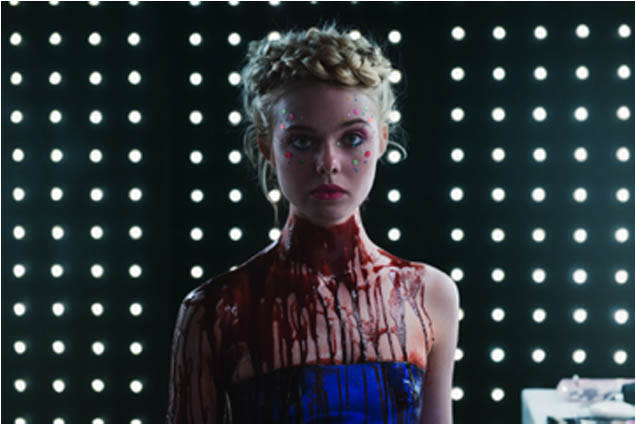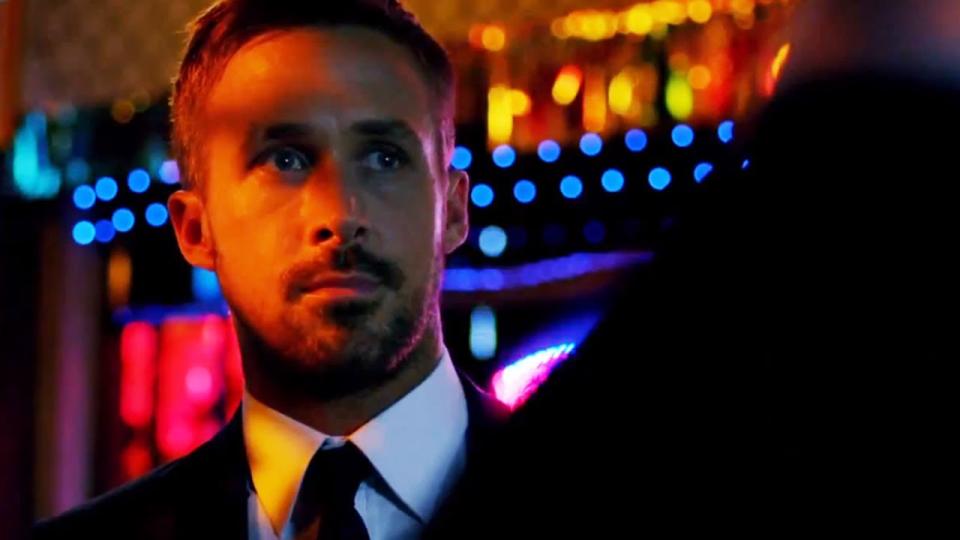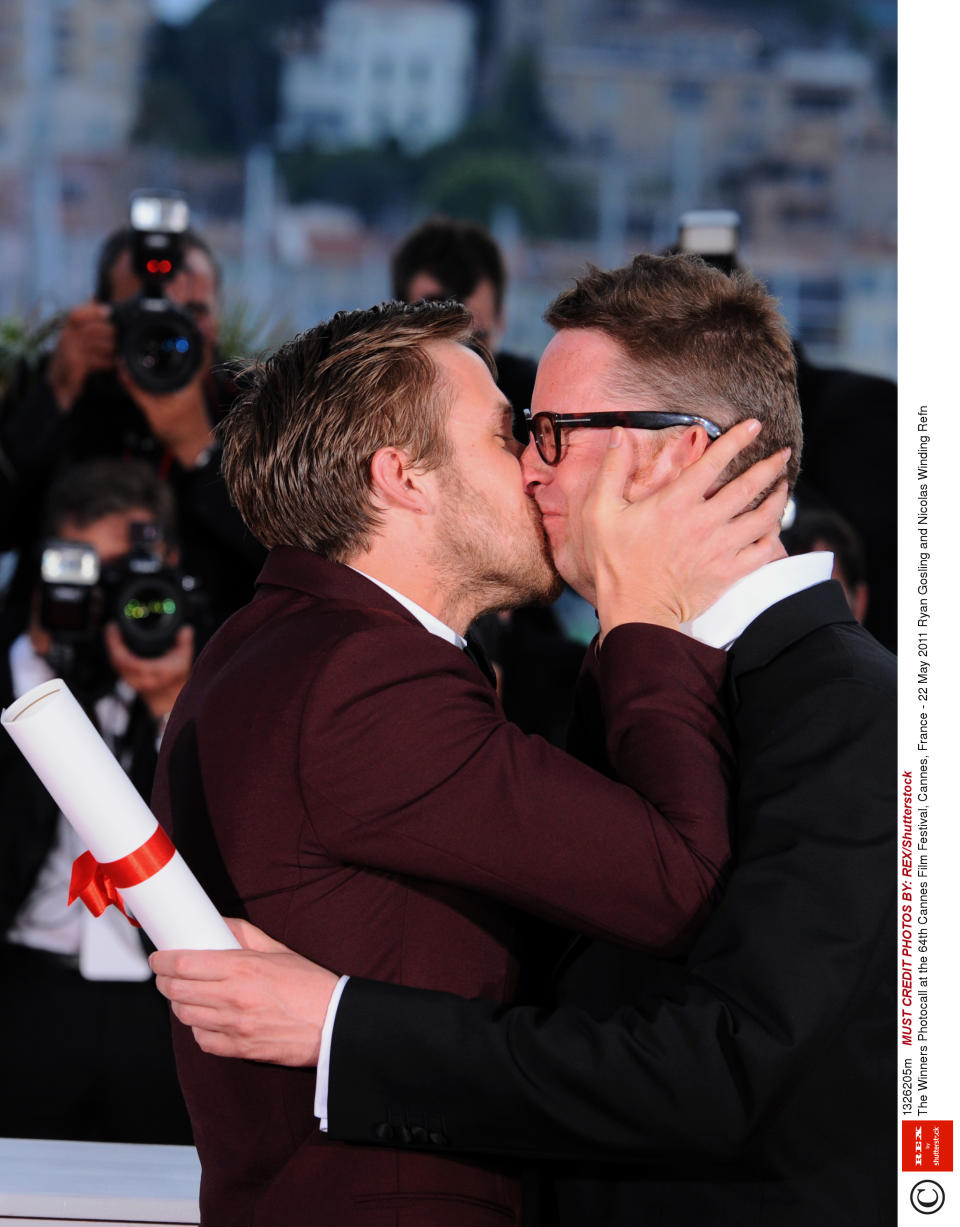Nicolas Winding Refn On ‘The Neon Demon’, Hollywood’s Seduction & Doing It His Way – Cannes

Danish director Nicolas Winding Refn this year marks his third time in the Cannes competition with The Neon Demon screening tomorrow. The LA-set horror film stars Elle Fanning and Abbey Lee in Refn’s first female-driven effort. With a résumé that included such films as Valhalla Rising, Bronson and Pusher, he moved to the Palais stage with 2011’s Drive, winning the Best Director prize. Two years later, he was back with Only God Forgives, a film that polarized the Croisette. But that reaction didn’t faze him; “It gave people an experience they’d never forget,” he has told me.
With The Neon Demon, Refn is working with Amazon for the first time; a company he believes is opening opportunities for filmmakers like him. His own career has evolved over what is now 20 years, and while he values creative freedom above all else, that doesn’t mean he wouldn’t do a studio or superhero film. But, despite his all-out love for Hollywood, he still cautions she can be like a “very, very expensive prostitute”.

DEADLINE: What
led you to The Neon Demon?
REFN: A combination of many things, but I believe there’s a 16-year-old girl in every man, and in my situation certainly I felt it was time to make a film about my version of it. For many years I wanted to make a horror film and I had various ideas, but I never had a way in. It wasn’t really until we went back to LA, because it was the only place [my wife] Liv wanted to go after Bangkok.
DEADLINE: Why do you think there’s a 16-year-old girl in every man?
REFN: Oh it’s just common knowledge. Mine really came out because, you can say that with Drive I reached a level of pristine masculinity, obsessively to the point of homoeroticism. So afterwards with Only God Forgives it was to deconstruct everything by returning to the mother’s womb. And of course that film is about a man that’s chained to his mother’s womb and really wants to crawl back into his mother, which is very opposite of pristine masculinity. But it enabled me to come up with this idea: Now that I’ve crawled back into my mother, I can be reborn as a 16-year-old girl and that’s how I got the basis for what I wanted to do with The Neon Demon.

I wasn’t born beautiful, but my wife is and I have very beautiful kids, so I thought it could be interesting to make a film about what it was like being beautiful and the world that you walk into, which is a very obsessive world. It’s a stock that continues to go up and even in our mythology, we define masculinity with strength and beauty with power.
DEADLINE: What was different about working with a female cast?
REFN: [Laughs] It was just a lot of fun in the makeup trailer. But it was no different, it’s still performance. I was very lucky I had a wonderful, largely female-driven crew and a wonderful cast. But it would never have worked without Elle Fanning. She’s born with ‘It’. And it’s a very unique thing to be born with because God doesn’t throw those pieces around a lot. She’s like a combination of the greatest silent movie star and the most cutting-edge actresses that have ever been produced.
DEADLINE: How have you evolved over 20 years of filmmaking?
REFN: My first five or six were very turbulent; it was a very bumpy ride both artistically and commercially. But looking back on it I can say that I’ve gotten to know everything about being in the film industry in a very condensed period. That’s important to know because if you don’t fall, you’re not going to be able to run. Then, once I started kind of my second phase which started with Bronson, I realized that art is a lot about experiencing, and knowledge. And it’s good to grow older and be a little wiser because you actually become better at what you do. I started making films purely based on what I would like to see. Rather than trying to be the greatest filmmaker of all time in the beginning, I decided I’m going to be the greatest filmmaker of the kind of films I make. And that was much smarter and much, much healthier because then everything I did became an extension of myself and not about what I thought the perception would be from everyone else about me.

DEADLINE:
After Drive, you almost did The Equalizer; do you still want to do a studio film? Or a superhero movie?
REFN: I already did one of the best ones ever made, which was Drive, because that’s a superhero construction. But would I want to do another? Sure, I love big films. There just hasn’t been the one that worked for what I wanted to do. I thought I was very vocal some years ago about Wonder Woman; I felt I was born to make Wonder Woman. I love that character. And I’ve had some wonderful meetings about various projects.
But I also love my freedom. No money in the world would ever outweigh the satisfaction of doing something exactly the way you want to do it. That high is unattainable if you don’t have final cut. It’s like the high on having the ability to make the movie you want to make is the ultimate drug. It’s very solitude-oriented because you can’t even share it. You can’t buy it and snort it with someone else or shoot it in your veins, you just have to do it. The endorphins that it produces when you go, “Well this is how it turned out and I got to make it the way I want to make it,” it’s still the reason why you go through fire and water… So it’s kind of a conflict that I’m always in, but I would love to try to do a studio film.
DEADLINE: What about Hollywood can make it a challenge for foreign directors?
REFN: It’s not easy to make these films, and I understand that you can’t make them based on your upbringing because there is so much money invested that you have to think about it more as a toy company. How do we maximize our profit because we’re investing so much? I completely think it’s logical and also I think it’s healthier going in with that attitude of: This is a job to execute, what is the best possible way to obtain the most upside? Doesn’t mean you can’t do a great job, doesn’t mean you can’t make a great movie. But it’s just important that you don’t kick yourself going into those things thinking it’s nothing other than this.
You can have all the control at a $100 million budget, but then you have to make $500 million and that’s a much larger appeal. There’s things in my films that I couldn’t do if I wanted to appeal that largely. You may have the contractual control, but the money still controls you. I’m not saying that’s a bad thing, but again all those things I’ve learned over the years, those are the decisions you have to really deep down understand.
Also you can get very wooed by Hollywood. I love Hollywood, don’t get me wrong. I love it, I love it, I love it. But it’s important to really understand that Hollywood is like a really, really expensive prostitute. She’s going to promise you everything — you can f*** her in any possible way because she’s there for you. She wants your vision. And it’s very seductive: “Come in here, play with me, do whatever you want.” And then when you start f***ing her, it can potentially be like, “Hang on, I know I said it but I didn’t mean it. No you can’t do that, you can’t do that, you can’t do that.” And in the end, you’re like, “Well, where do I come?” And depending on your ability to perform, they’re going to determine how you’re going to come, and then that’s just a really terrifying journey. So I thought, well, I’ll just stay with my wife, knowing that we’ll have very, very satisfying sex, and then I can go do the films I want to make.
But I love working in Hollywood.
DEADLINE: You’ve taken swings in your career; would you say you’ve taken risks?
REFN: I always as a firm rule make my movies based on how inexpensively I can make them because that means the more freedom I’m going to have. There’s a certain budget range now that I can maneuver around knowing that I’ll have complete autonomy. If I go above a certain level, I have to deliver specific things like a cast to create security. If it goes beyond that, I have to look on censorship and if it goes beyond that, I have to start looking on how do I make this appealing to as many people as possible? So it’s just a normal equation of where you want to be and I tend to really love being at the early stage and then everything is just upside because at least I can go to my grave saying, “Well, I did it the way I did it.” I always approach every film I make as if it was going to be the last. So if I’m going to go out, I’m going out with a bang.

DEADLINE: You made this movie with Amazon. What was so attractive about working with them?
REFN: Amazon is like global dominance, which is terrific because it opens a lot of incredible opportunities for people like me. They came at the right time in my situation, and the people that came were Bob Berney — who I had done Drive with very successfully — and Ted Hope, who is certainly one of the director-driven producers in America. And then Scott Foundas, who comes from such a knowledge of film but such a vast definition and various tastes. There was for me a lot of trust in the people that are going to work with you. They’re fully committed.
And then what really cemented the deal was Bob’s insistence on Amazon’s focus on a theatrical experience. Because Neon Demon is a much larger movie in its appeal, it needed a very strong theatrical push and Bob was like, “That’s what Amazon stands for,” meaning that Amazon wants people to have the best possible experience watching a movie, and we all know that’s theatrical. And then when it’s done theatrical, it goes to Amazon Prime; streaming has become the savior of independent cinema. So in that way it was like the best of both worlds right in front of me and I said, “Thank you very, very much.”
DEADLINE: You advanced to a world stage with Cannes. What is your relationship to the festival?
REFN: I’m just really, really honored and super-excited to be invited back. When I was 20 years old, my uncle was an arthouse distributor and he would take me to Cannes every year to work as a film scout. It was a great way to imagine the magic of what it’s like; it’s just the f***ing best. It’s a place that’s really been very good at maintaining evolution of cinema.

DEADLINE:
What have been some memorable moments for you here?
REFN: I think what was legendary the year of Drive was me being kissed by Ryan Gosling in public. That had never happened to me before but it’s like, if you gotta do it, do it at Cannes. Up until now, knock on wood, I’ve never had anything but a good Cannes experience. Drive became what it became and me and Ryan became officially an item, publicly, so that was like a marriage. And then with Only God Forgives, the establishment went insane with hatred and all of the kids online loved it. So, it was like being the Sex Pistols of cinema.
Related stories
'The Man In The High Castle' Showrunner Frank Spotnitz Exits Amazon Series
Get more from Deadline.com: Follow us on Twitter, Facebook, Newsletter


